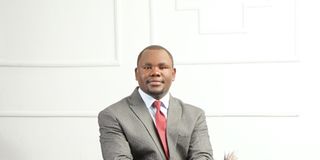Avoiding degree regret: Lessons from students who chose wrong courses

Career Coach Douglas Wanjala.
For years, the most common career advice to young people has been the simple question, “What do you want to become?” While it sounds harmless, this is not a career plan…it’s guesswork.
Too often, students end up choosing paths based on parental influence, peer pressure, or outdated notions of success leading to wrong courses, wrong colleges, and years of regret.
Janet Nyambura, currently pursuing medical engineering admits that if given another chance, she would never have chosen the course.
“I am doing this so as not to disappoint my parents, but honestly, I don’t think I will even practice it after graduation,” she says.
Interestingly, Nyambura has thrived in digital marketing after taking a short course and already receives job offers while still in school.
With better career counseling, she believes she would have made a more fulfilling choice.
Similarly, Steve Omondi, who dreamed of becoming a chef says his family insisted he study electrical engineering, claiming it offered better job prospects.
Today, despite completing the course, he has never secured employment in the field and now runs a small business.
“If I had followed my passion, I believe I’d be working toward being a top chef in Nakuru,” he reflects.
Omondi is now saving to pursue his culinary dreams, even if it means studying part-time.
According to career coach Douglas Wanjala, such experiences highlight the urgent need for structured guidance before young people make life-shaping decisions.

Career Coach Douglas Wanjala.
“The issue doesn’t start at campus. Parents must go beyond paying school fees and start conversations about their children’s passions and natural strengths,” he explains.
He emphasizes that a good career choice lies at the intersection of passion, personality, and the future of work.
Wanjala encourages parents and schools to support assessments such as psychometric or personality tests to help learners understand themselves better.
He also points to the drastically changing world of work where freelancing, digital platforms, and portfolio careers are reshaping opportunities.
Ultimately, career clarity cannot wait until university. It must begin earlier, blending self-awareness with market realities.
Otherwise, more young people risk investing years in careers they neither enjoy nor pursue.


